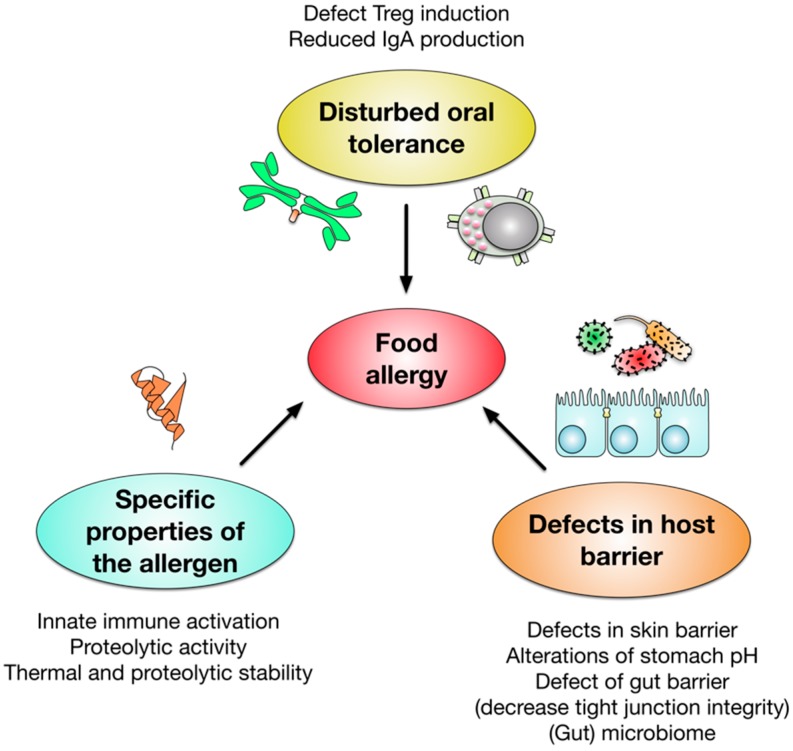Figure 2.
Factors contributing to the development of food allergy. The published literature suggests, that both a disruption of regulatory T cell (Treg)- and immune globulin A (IgA)-mediated oral tolerance and defects in the barrier function of skin and gut contribute to the development of food allergy. Moreover, alterations in stomach pH and the gut and skin microbiome were shown to influence allergic sensitization. In addition, intrinsic properties of the allergen molecules such as innate immune activation, proteolytic activity, or increased thermal and proteolytic stability contribute to allergic sensitization.

